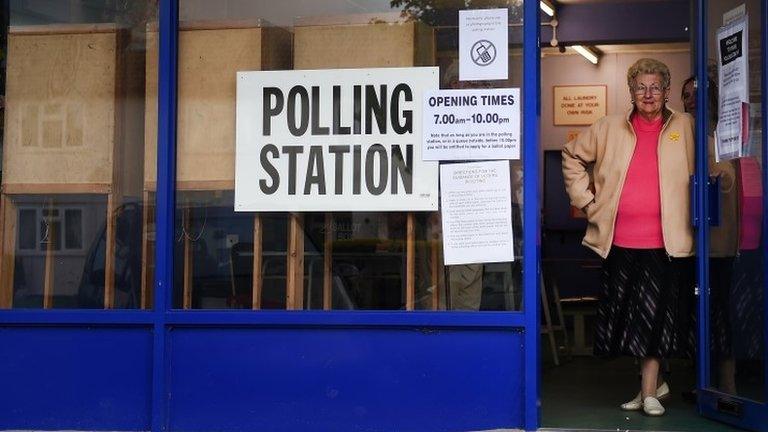'Everything's on fire' - the scramble to organise an election
- Published
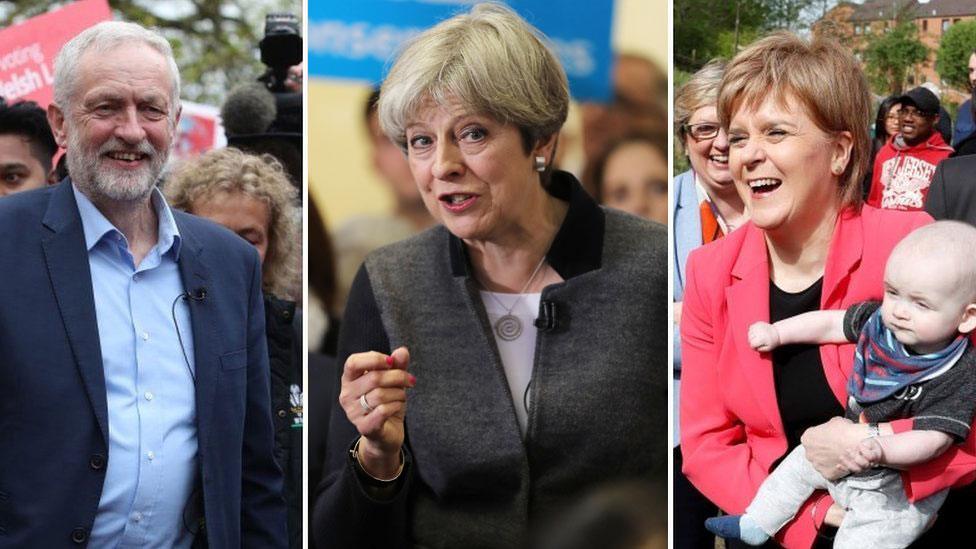
When Theresa May announced on Tuesday she was seeking an early general election, scores of people saw their weekends and half-term holidays vanish in a giant puff of electioneering, manifesto-writing and the mammoth admin task of staging a nationwide ballot.
By anyone's estimations, the general election of 2015 was an immense piece of administration.
Forty-five million ballot papers were printed to reflect 650 separate candidate lists for the election. Forty-three thousand polling stations were staffed for 15 hours by 120,000 people. And the total cost of it came to £98,845,157.
But all that was organised with five years' notice - the duration between the previous election and the date of the 2015 poll.
The time frame for the 2017 ballot, which takes place on 8 June, is little more than seven weeks.
One Conservative member of staff told the BBC she was completely taken aback. "I have friends who work for ministers and even they didn't see it coming until the Cabinet meeting took place."
The clock is already ticking, and there is much work to be done. A Labour aide working for an MP described the past week as "very stressful".
"In my own time after work I've been contributing to campaign materials and arranging to uproot myself from London so I can go back to the constituency."
While general elections are about putting MPs in Parliament, it falls to councils to organise the nitty-gritty of voting and counting.
Venues for polling stations and counting centres will need to be earmarked and reserved for 8 June. And that needs to happen before polling cards can be sent out.
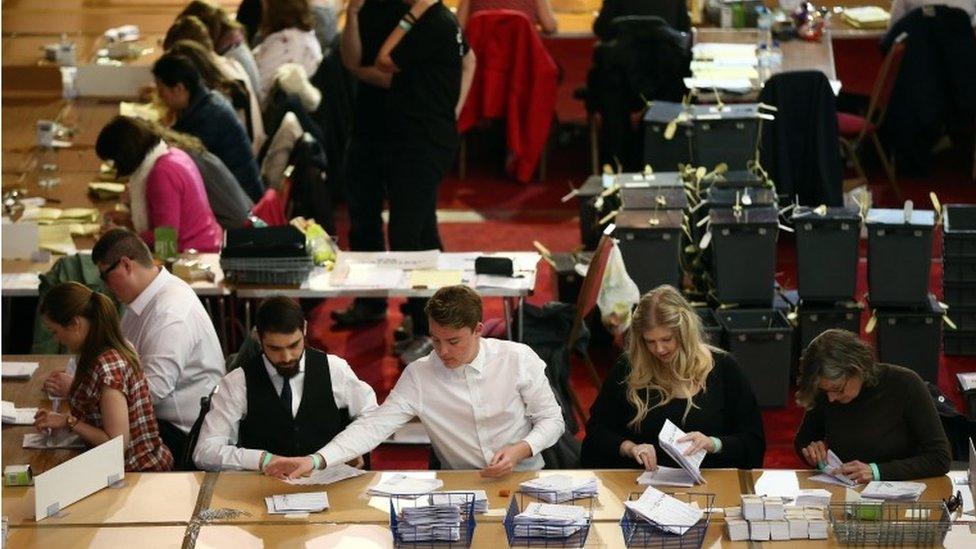
Some of the 120,000 people employed to conduct the 2015 election
This work is carried out by local authorities' electoral services divisions and overseen by returning officers.
John Turner, chief executive of the Association of Electoral Administrators, predicts this election will be particularly onerous for two reasons - the compressed time scale, and the fact local elections are already taking place in many areas in less than two weeks.
"Many polling stations aren't publicly owned," said Mr Turner. "They're church halls or community centres, and a lot rests on returning officers' ability to persuade the owners to move things around and make the space available."
As for staffing, electoral services departments maintain databases of temporary workers. But "in this case some of them may already have made other plans or booked holidays".
"Although returning officers are helped by permanent teams, this varies a lot. In some district councils it will only be two or three people and colleagues from other departments will have to pitch in.
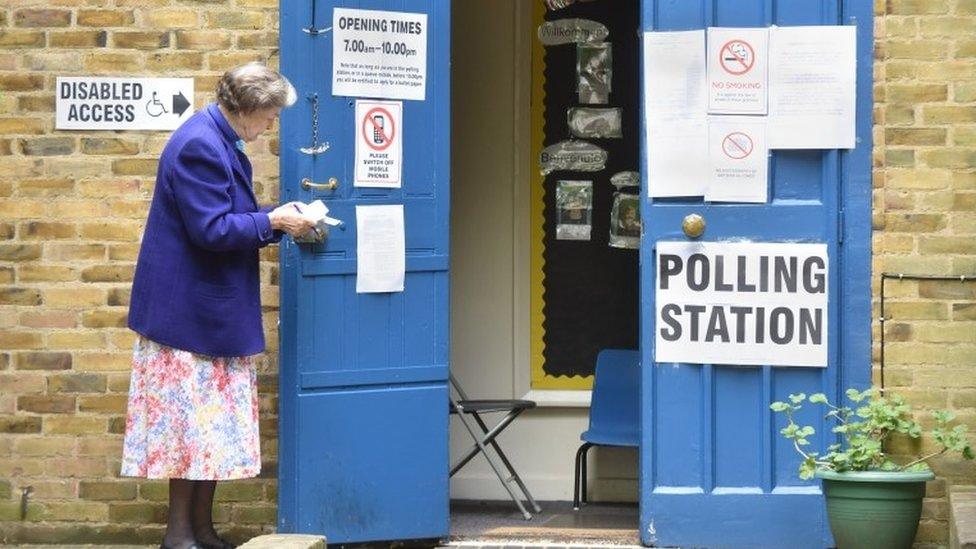
Polling stations have to be organised
"It's going to be an intense time for many of us, working 12-hour days."
Mr Turner is confident, however, that it will all come together in time, noting: "We're a bit like the duck paddling away beneath the water but serene on the surface."
There's equally little hope of sleep for those in charge of political policy making. They will be working around the clock on putting together manifestos.
It's a particularly stressful time for the party in government, says Nick Pearce, head of the No 10 policy unit under former Prime Minister Gordon Brown. As well as existing government duties, staff will be working "flat-out" to get the document finalised.
"A minister, usually from the Cabinet Office, takes overall responsibility, working with political staff from different departments to draft sections and liaise with the prime minister and her chief of staff," he explained.
Devil's work
Ministers, lobbyists and Treasury staff also get heavily involved, trying to place pet projects and ensure big-ticket items are properly costed.
"There's huge pressure not to get anything wrong," said Mr Pearce. "But working quickly like this there is certainly potential for that to happen."
And what of getting the message out?
Seven weeks is "a very, very tight time frame" for organising a marketing and advertising strategy, said Rachel Hamburger, an advertising executive and former Lib Dem campaigner.
"I'd be very surprised if we saw any nationwide broadcast campaigns comparable to famous ones of the past such as the Blair 'devil eyes'," she said.
"With a long run-up, parties could be expected to run focus groups, market research and analysis of what is most important to their campaign before deploying adverts.
This time, she believes. parties will "concentrate resources on individual seats and simple messages".
Elsewhere in the media, broadcasters are preparing for election night. The BBC is reassigning hundreds of researchers, producers, camera crews and local reporters to put together its results programme.
Parties, meanwhile, have to deal with the small matter of ensuring there are candidates in place in 650 constituencies for people to elect.
Labour and the Conservatives have both altered their normal selection procedures to speed things up, while all 54 of the SNP's existing MPs are expected to stand again.
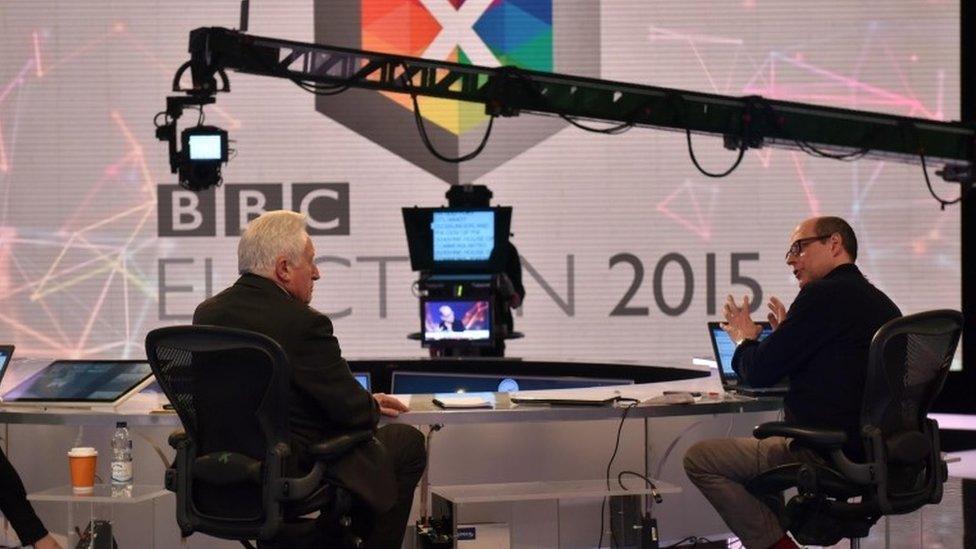
David Dimbleby, left, will host the BBC's election night results programme
The other parties are in varying states of readiness.
The Lib Dems say they have about 100 candidates still to pick. UKIP and Plaid Cymru will adopt the bulk of their candidates next week, while Greens' selection is under way with local electoral alliances under consideration.
None of Northern Ireland's parties are thought to have selected candidates, as talks continue about restoring devolved government.
Most candidates will not have had a chance to allocate resources. It has already led some to take the unusual step of appealing for online donations.
Regional party offices will provide MPs and activists with support, but the prevailing mood could be described as one of apprehensiveness.
When asked to sum up how things were going, a fretful Conservative source said: "Everything is basically on fire."
A Labour campaigner replied with a series of distressed crying and screaming emojis.
However, on a purely technical point, it's worth noting the 50-day gap between announcement and polling day is actually the longest since 1983.
What's different this time is the lack of preamble, and thus preparation.
As the BBC's former head of political research David Cowling put it: "Everyone was lulled into a false sense of security by assurances... and we're now completely stunned."


- Published18 April 2017
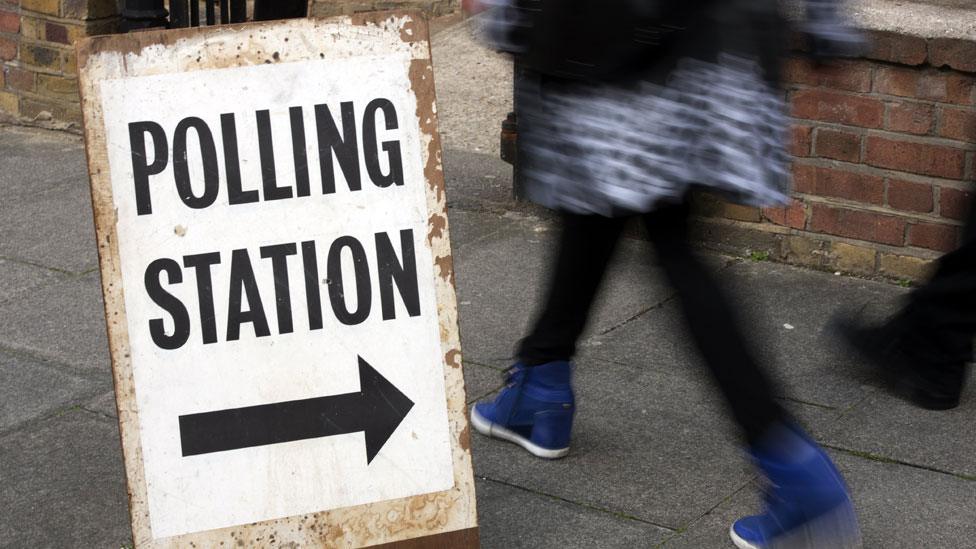
- Published2 May 2017
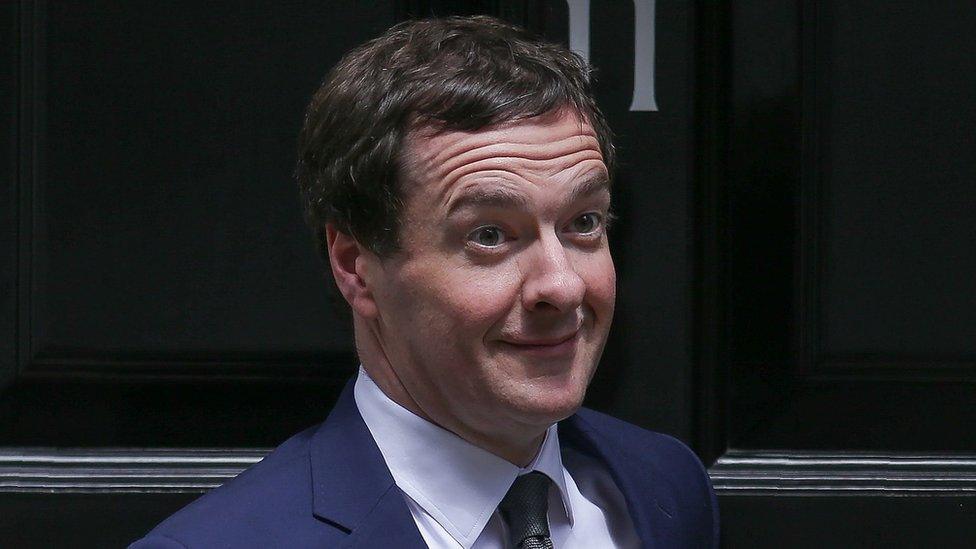
- Published22 April 2017
